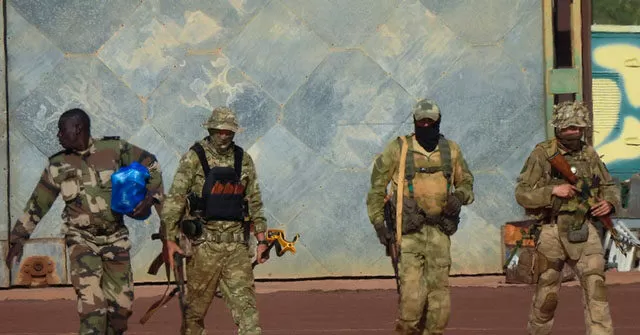The recent defeat of the “Africa Corps,” the revised version of the infamous Wagner Group mercenary outfit, has sent shockwaves through the international community. The once-feared private military company, founded by the late Yevgeny Prigozhin, suffered a disastrous defeat in Mali at the hands of jihadi insurgents this month. This defeat not only highlights the vulnerability of private military companies in conflict zones, but also raises questions about the effectiveness of the revamped Wagner Group.
The Wagner Group, also known as the “Kremlin’s private army,” has a long history of involvement in conflicts around the world. It gained notoriety for its role in the annexation of Crimea and the ongoing conflict in eastern Ukraine. The group has also been accused of involvement in the Syrian civil war and the Central African Republic. However, it was the recent defeat in Mali that has brought the Wagner Group back into the spotlight.
According to reports, the Wagner Group was hired by the Malian government to help fight against jihadi insurgents in the country. The group was supposed to provide training and support to the Malian army, but it seems that they were ill-prepared for the intensity of the conflict. The jihadi insurgents, who have been gaining ground in Mali in recent years, launched a surprise attack on the Wagner Group’s base, resulting in a devastating defeat for the mercenaries.
The exact details of the defeat are still unclear, but it is believed that the Wagner Group suffered heavy casualties and lost a significant amount of equipment. This defeat not only highlights the dangers of operating in conflict zones, but also raises questions about the capabilities of the revamped Wagner Group. The group, which was restructured after the death of its founder Yevgeny Prigozhin, was supposed to be more efficient and effective. However, this defeat has shown that the group is still vulnerable and not as formidable as it once was.
The defeat in Mali has also raised concerns about the involvement of private military companies in conflicts. These companies operate outside of traditional military structures and are not held accountable by any government. This lack of accountability can lead to disastrous consequences, as seen in Mali. The Wagner Group’s defeat not only puts the lives of their mercenaries at risk, but also the lives of innocent civilians caught in the crossfire.
The international community has also expressed concern over the Wagner Group’s involvement in conflicts around the world. The group’s ties to the Russian government have raised suspicions about their true motives and the extent of their involvement in these conflicts. The defeat in Mali has only added fuel to these suspicions and has led to calls for stricter regulations on the operations of private military companies.
In the aftermath of the defeat, the Wagner Group has been forced to reassess their strategies and capabilities. The Malian government has also terminated their contract with the group, citing their failure to fulfill their duties. This defeat has not only dealt a blow to the reputation of the Wagner Group, but also to the Russian government, who has been accused of using private military companies as a tool for their foreign policy.
In conclusion, the recent defeat of the Wagner Group in Mali has sent a strong message to the international community. It has highlighted the dangers of operating in conflict zones and the need for stricter regulations on private military companies. The defeat has also raised questions about the capabilities of the revamped Wagner Group and their true motives in conflicts around the world. It is a reminder that the use of private military companies should not be taken lightly and that the lives of innocent civilians should not be put at risk for political gain.

